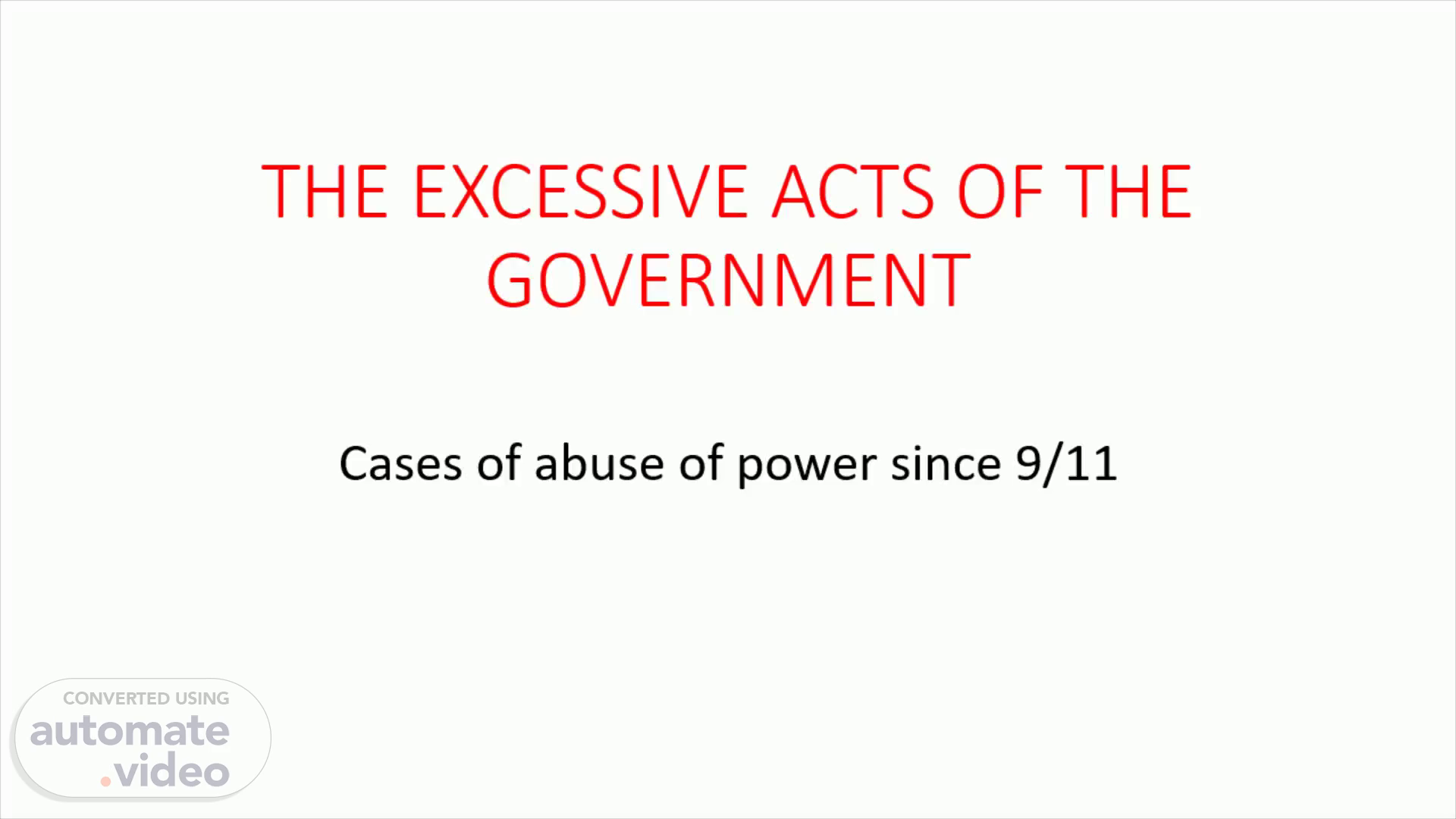
THE EXCESSIVE ACTS OF THE GOVERNMENT
Scene 1 (0s)
THE EXCESSIVE ACTS OF THE GOVERNMENT. Cases of abuse of power since 9/11.
Scene 2 (8s)
After such an event, national reactions were felt and ready to be applied. However, too much power can lead to its blindness. H ere are ten cases of abuse of power since 9/11..
Scene 3 (21s)
Warrantless Wiretapping. The New York Times reported in December 2005 that the National Security Agency was tapping into Americans' phone calls without a warrant, in violation of federal statutes and the Constitution. Furthermore, the Agency had gained direct access to the telecommunications infrastructure through some of the country's top corporations..
Scene 4 (38s)
Torture, Kidnapping and Detention. Since 9/11, the US government has illegally kidnapped, detained, and tortured a large number of people. The government continues to assert that it has the authority to designate anyone as an "enemy combatant" without charge, including Americans..
Scene 5 (53s)
No Fly and Selectee Lists. The No-Fly list was created to keep track of those who are prohibited from traveling by the government due to security concerns. Since 9/11, the number of similar watch lists has grown to almost 720,000 names, all with strange or ill-defined criteria for how names are added to the lists, and little recourse for innocent passengers wanting to be removed..
Scene 6 (1m 14s)
Political Spying. Government agencies, such as the FBI and the Department of Defense, have performed their own surveillance on law-abiding citizens. The FBI had been constantly monitoring peaceful groups such as Quakers, People for the Ethical Treatment of Animals, Greenpeace, and the Arab American Anti-Defamation Committee through the Freedom of Information Act..
Scene 7 (1m 32s)
Abuse of Material Witness Statute. In the days and weeks after 9/11, the government used narrow federal technology to gather and detain many people—mainly Muslims in the United States—allowing the arrest and brief detention of "important witnesses," or those with important experiences People. Information about crimes. Most people detained as important witnesses have never been regarded as witnesses to the 9/11 crimes, and although they were detained to secure their testimony, in many cases they did not make an effort to secure their testimony..